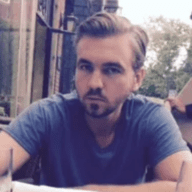There is a distinct difference between public health and health care. The former is about caring for the population at large—implementing preventative measures and dealing with widespread issues as they arise. Health care is what we receive when we go to the doctor; it concerns the wellbeing of the individual.
In the time of COVID-19, both of these entities are in the public eye. The world is focused on protecting populations while at the same time having the infrastructure in place to care for an unprecedented number of individuals.
In America, it seems we are always hyper-focused on health care. It is baked into nearly every political discourse and platform. Before COVID-19 became the focus of the news, health care was a major topic during presidential debates. We are constantly aware of the ways health care impacts us. Every time we go to the doctor or pick up a prescription, we come into contact with the system.
Public health tends to concern many of the things we take for granted. When it is working well, we don’t hear about it at all. Public health is “a victim of its own success,” said Jonathan Oberlander, a health policy researcher and professor at the University of North Carolina-Chapel Hill. When public health is failing, we begin to take notice. One of the main issues we are currently dealing with is how to gauge the efficacy of safety measures. If precautions are taken seriously, and a crisis is averted, people often tend to say that the measures were unnecessary. If precautions are not taken, and there are consequences, people tend to criticize the public health system for a lack of foresight.
It is a textbook example of damned if you do, damned if you don’t.
We can see this dynamic creating tension around the country. Some people support shelter-in-place measures, while other people are congregating in state capitols to protest those measures. Some people gladly wear PPE gear, while other people make a point of wearing nothing to rebel against what they regard as an infringement on their rights. In the middle of all this dissonance is public health.
The fact of the matter is that we need to do a better job keeping public health at the forefront of our collective consciousness. I believe that rare disease stakeholders have a unique and useful perspective on this issue, and they can help raise awareness and be much-needed thought leaders in their own communities. Instead of taking public health for granted, we can all contribute in our own small way to keep our communities healthy during a critical time.

